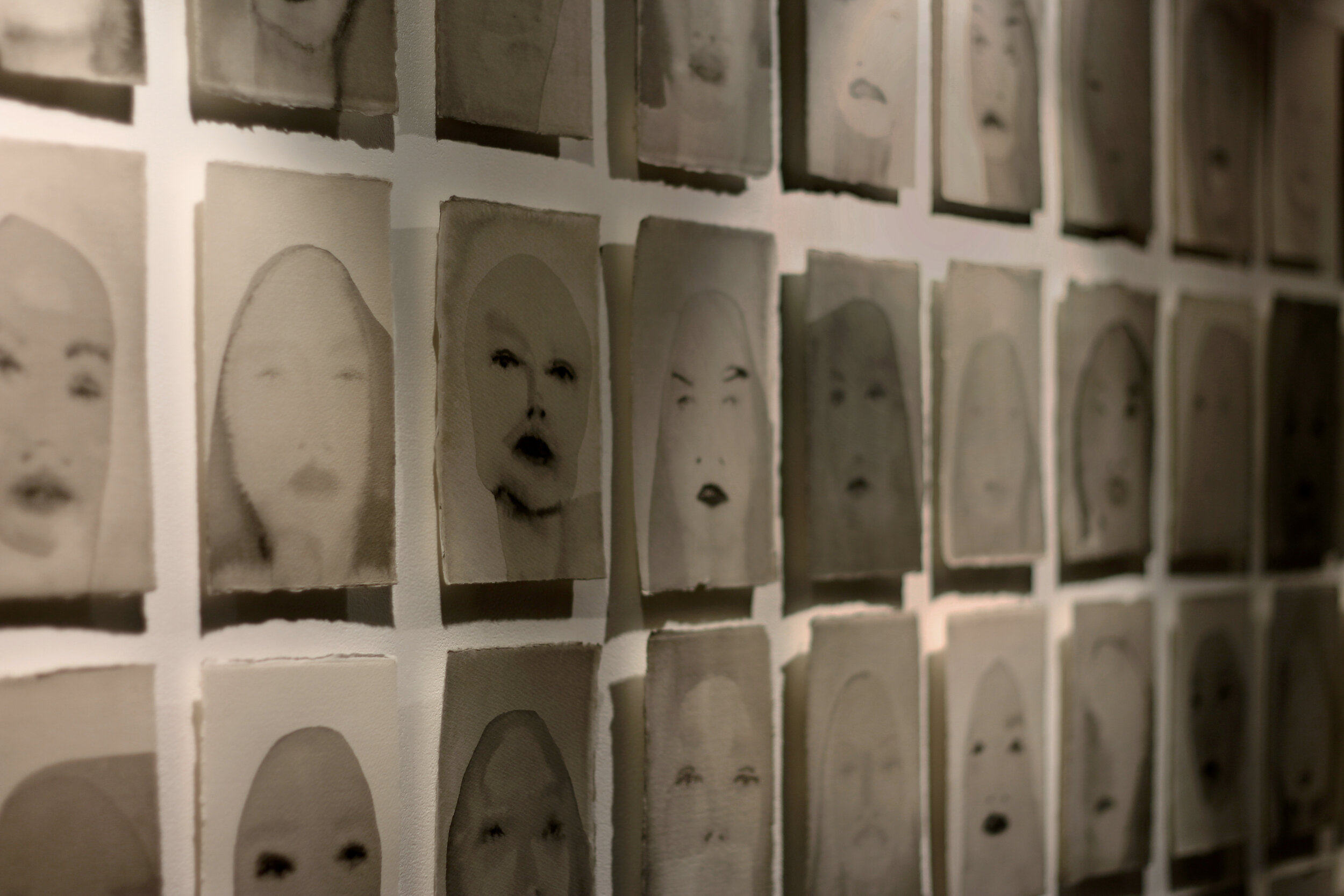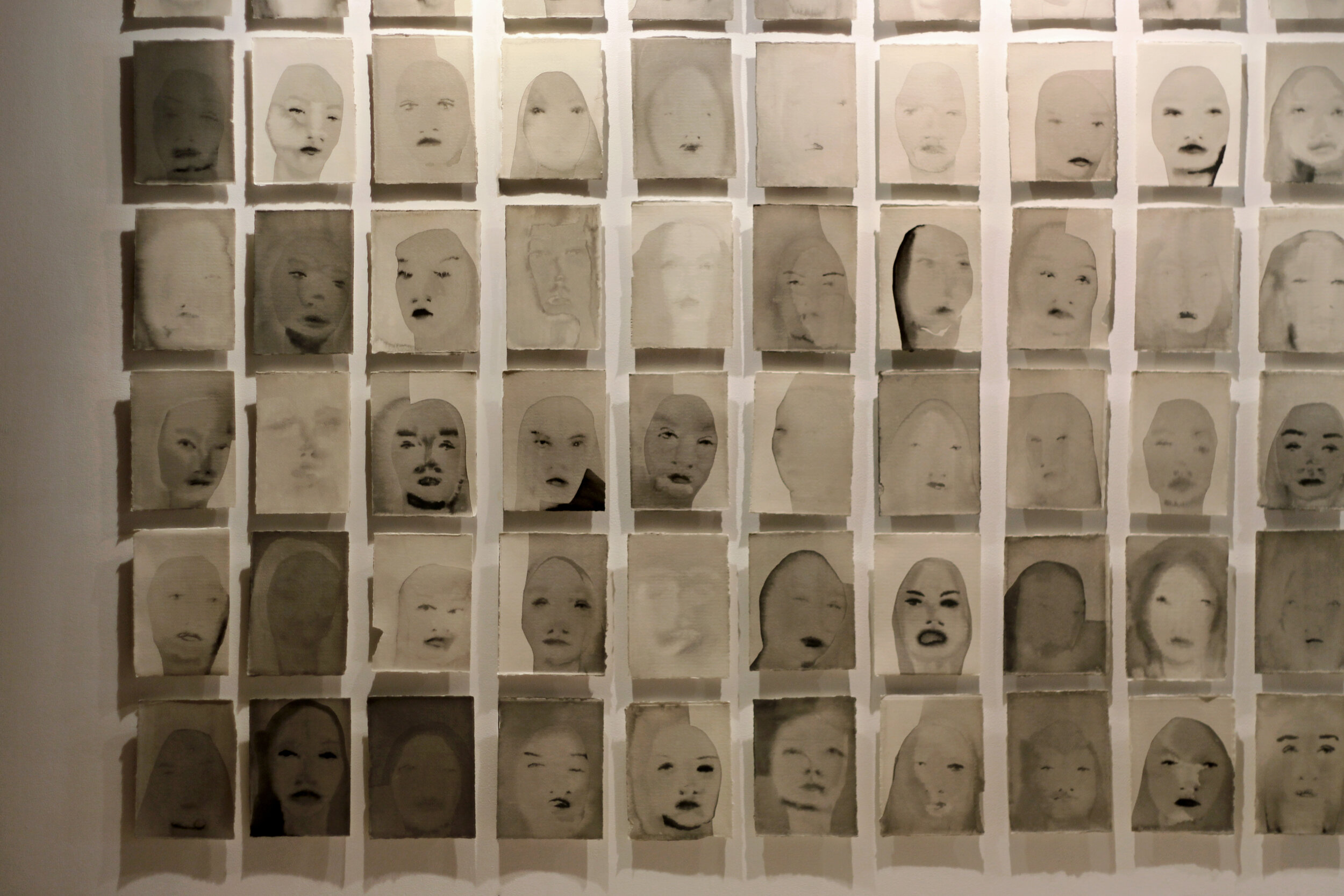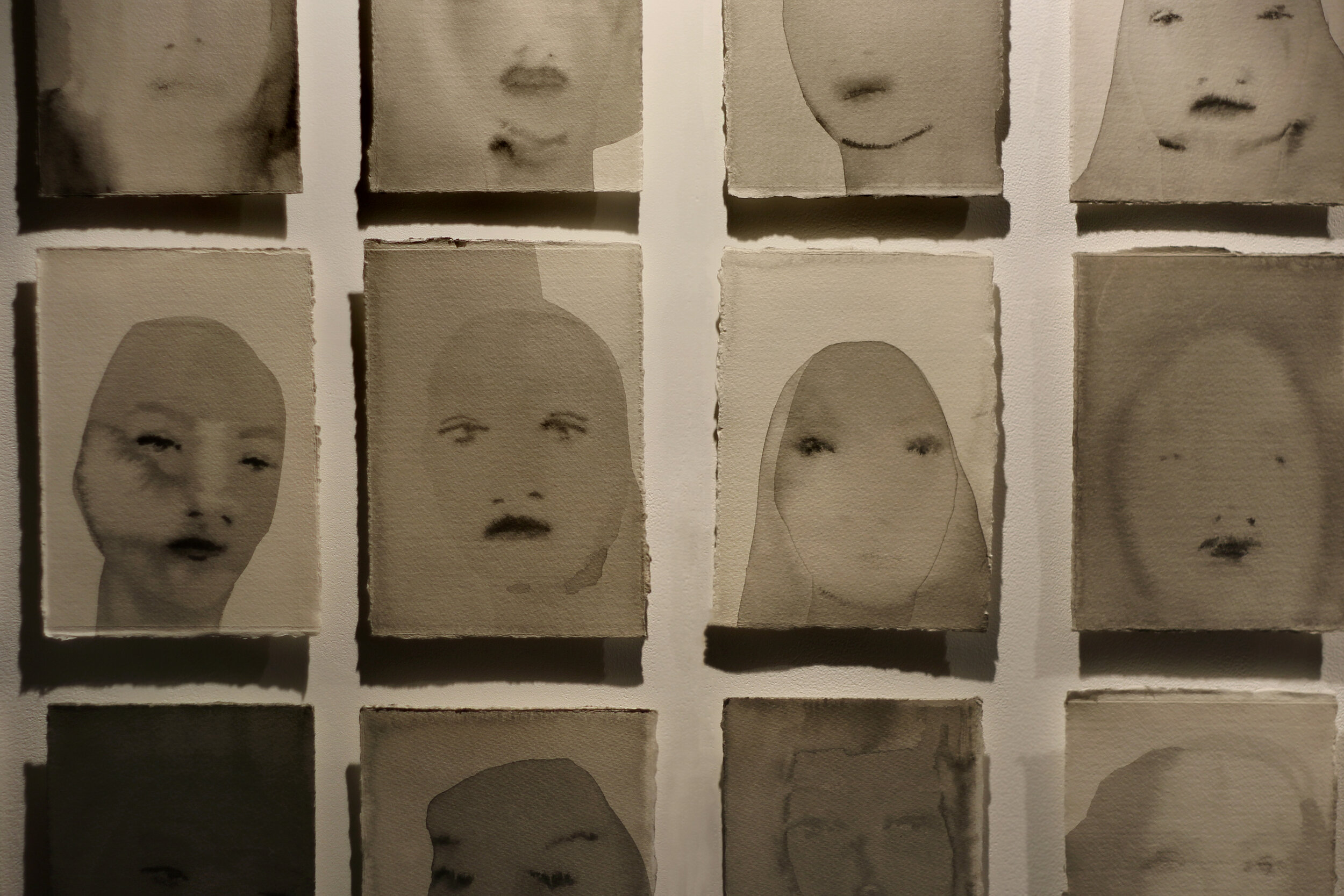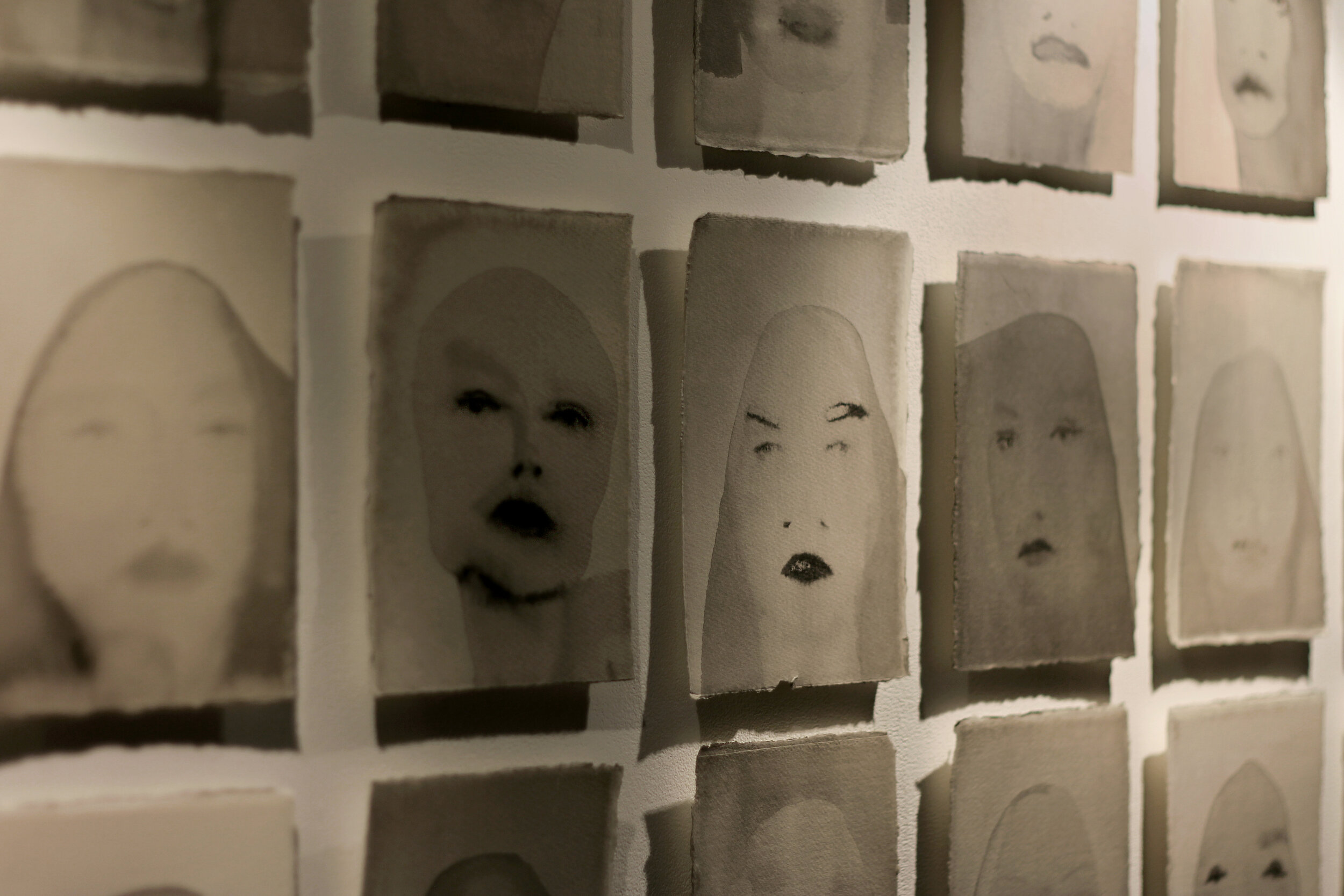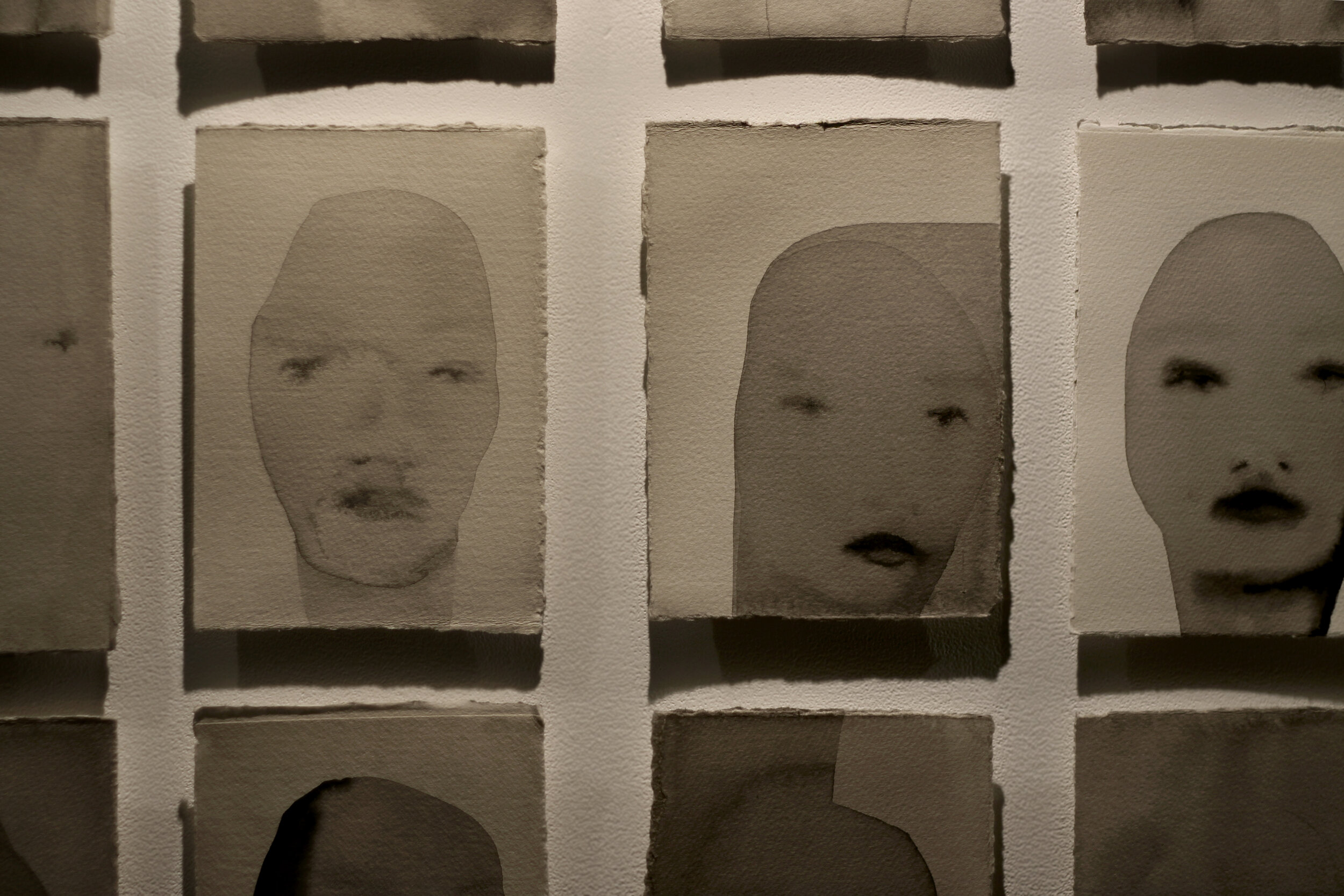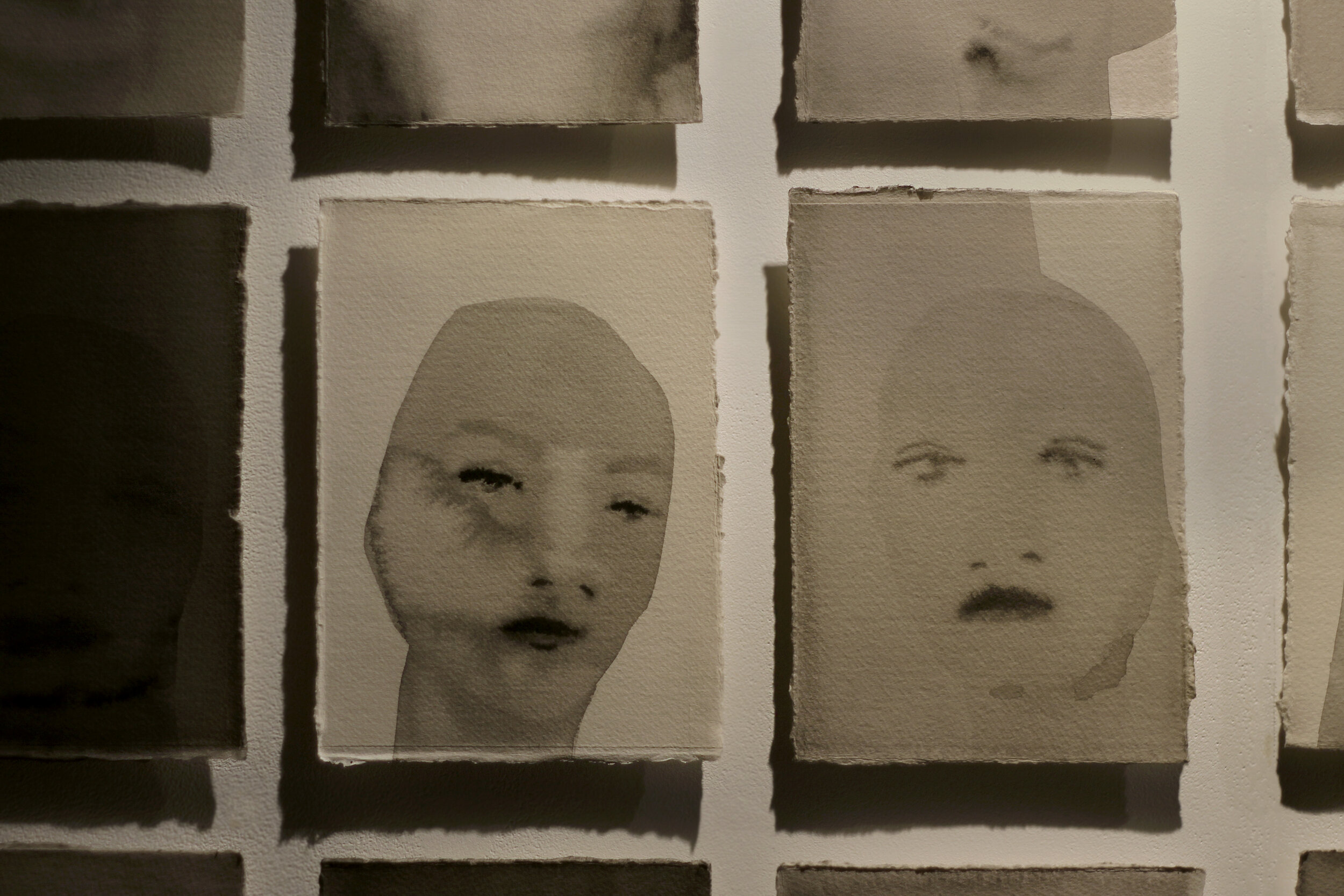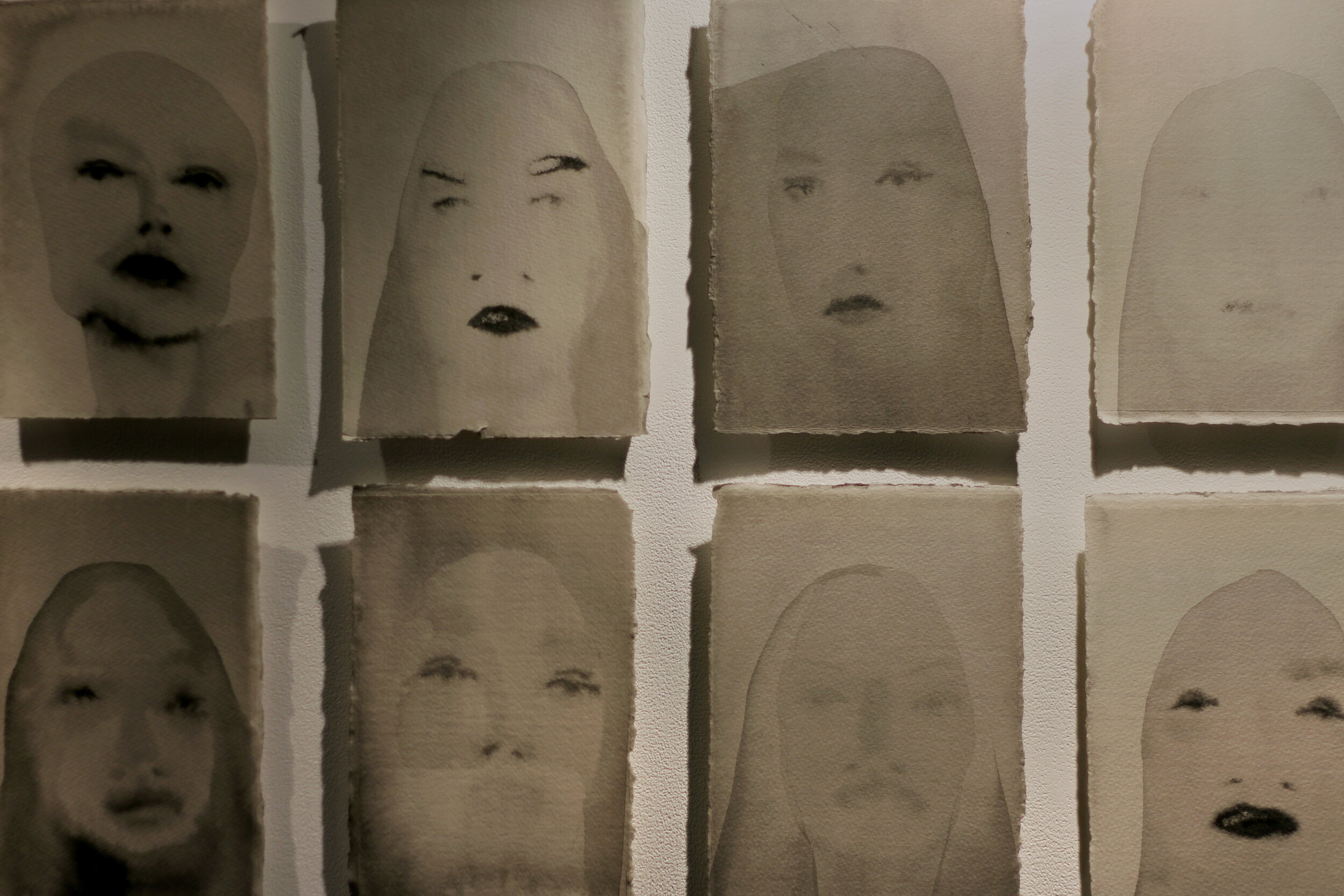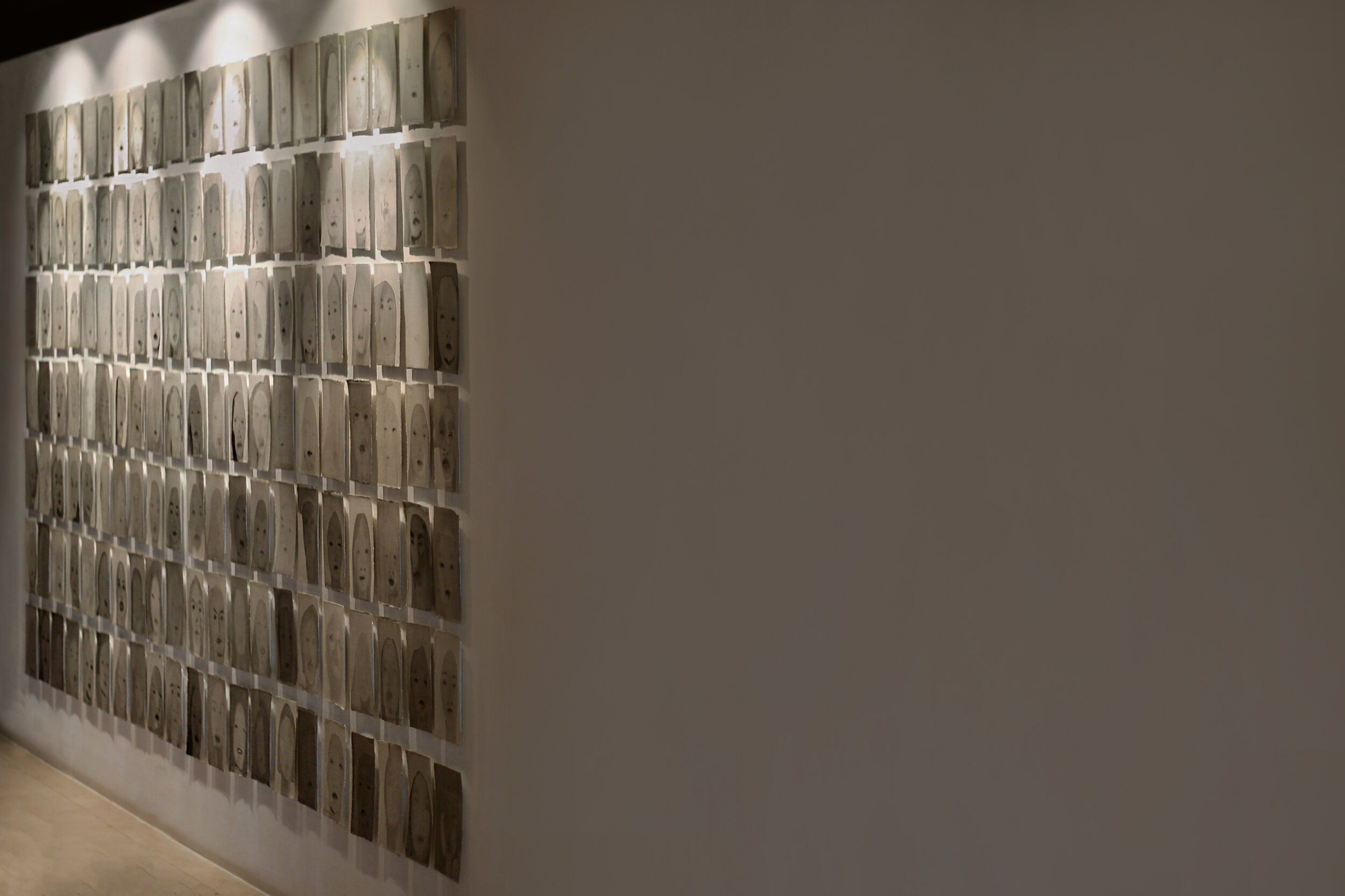Rinse, 2019 - 2020
Ink on paper and audio
147 portraits, roughly 14.8 × 21 cm each
The body of work Rinse thematically stems from the limitations society imposes surrounding gender and its relative associations, expectations, and conditions. Society has felt the need to gender everything and whether consciously or not, many individuals live their life through gender–orientated societal, cultural and media influences. One’s life choices should not feel triggered or conflicted by such specifications. Although experienced differently in varying contexts, this underlying issue is applicable to any gender, age or socio-cultural background.
Rinse is an aesthetic and conceptual rinsing of these accumulated roles that have been imprinted in one’s understanding of an individualised and collective concept of identity. Here, the word rinse, and the concept of rinsing is being interpreted as a form of cleansing. The washed out aesthetic given to the series of portraits captures the impression of this rinsing process being undergone. The diluted representation also blurs the indication of the individual’s sex, which conceptually extends to blurring what is metaphorically masculine and feminine.
The series of portraits are accompanied by an ongoing audio made up of rinsing sounds. The audio is projected through hidden speakers, observing how that being addressed is not something that is actively sought out and taken in, rather, it is a passive stream of literal and metaphorical noise. The audio aims to replace that noise – with its unclear source requiring the viewer to listen in and shift from their habitual external/internal dialogue.
The installation hopes to offer a space for contemplation to theoretically ‘rinse’, exploring what may surface once these intangible limitations dilute.
Rinse formed part of the collective Art + Feminism 2020 Exhibition at Spazju Kreattiv, Valletta.
Relevant Links
Installation video by Spazju Kreattiv
Rinsing the psyche clean of gender neuroses, Malta Today article by Teodor Reljic
